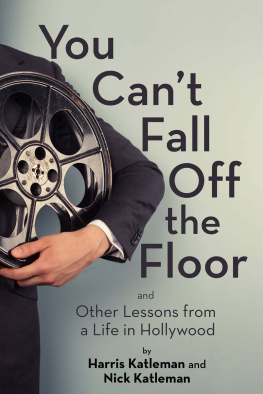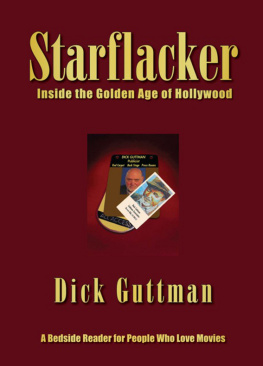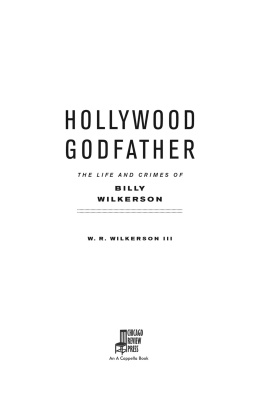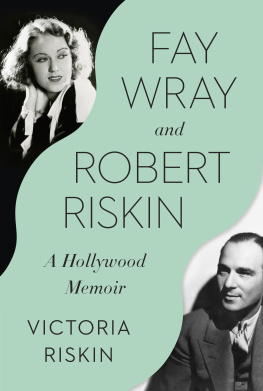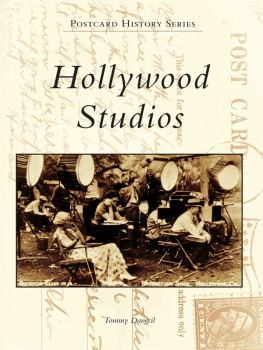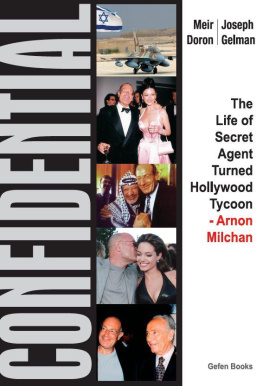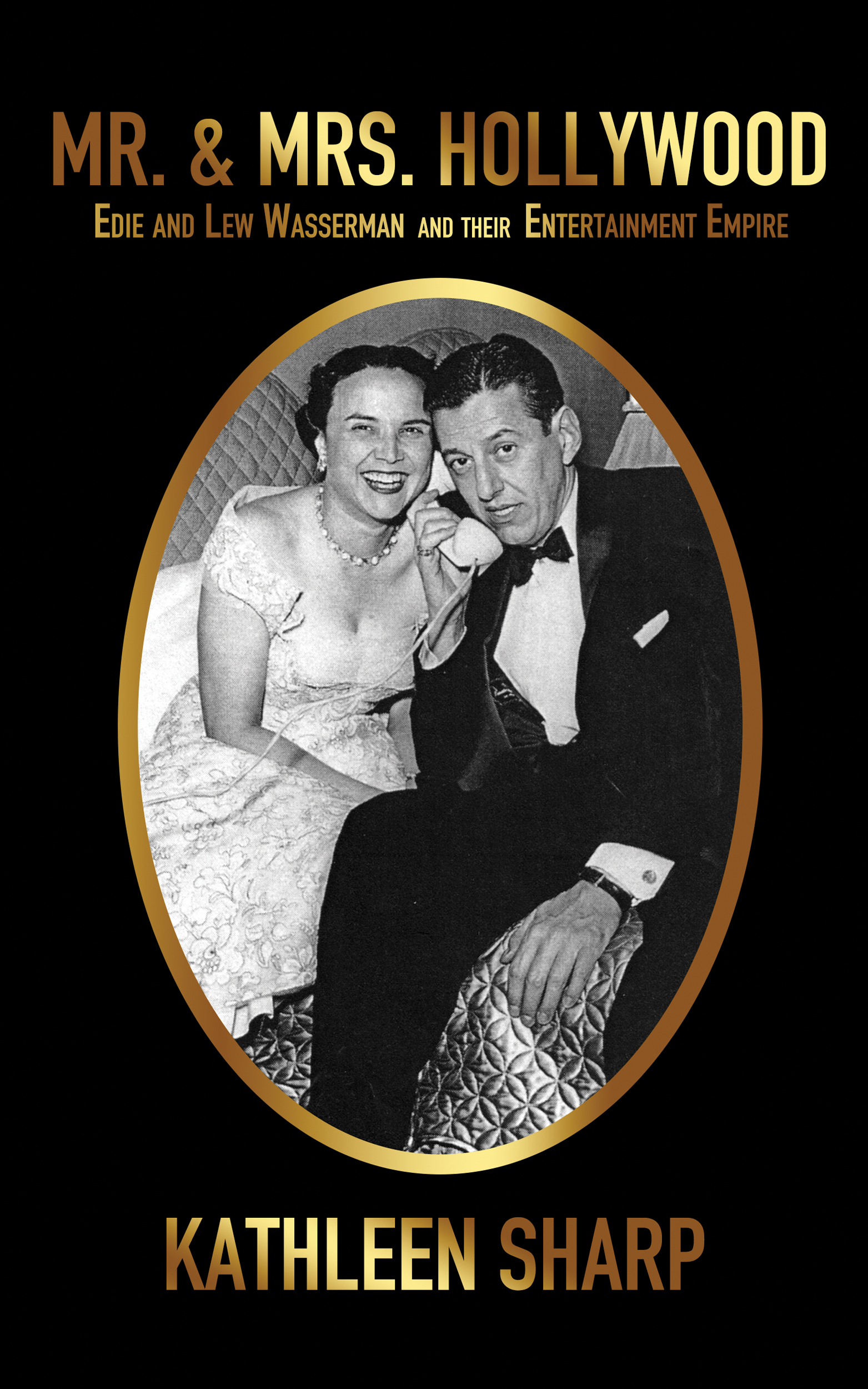MR. & MRS. HOLLYWOOD
Edie and Lew Wasserman and Their Entertainment Empire
Kathleen Sharp

Copyright 2013 by Kathleen Sharp
Published in Cover photograph Kathleen Sharp
Copyright 2013 by Kathleen Sharp
E-book published in 2017 by Blackstone Publishing
Cover photograph Kathleen Sharp
All rights reserved. This book or any portion thereof may not be reproduced or used in any manner whatsoever without the express written permission of the publisher except for the use of brief quotations in a book review.
Trade e-book ISBN 978-1-6206-4774-5
Library e-book ISBN 978-1-6246-0100-2
Biography & Autobiography / Entertainment & Performing Arts
CIP data for this book is available from the Library of Congress
Blackstone Publishing
31 Mistletoe Rd.
Ashland, OR 97520
www.BlackstonePublishing.com
Part I
Obtaining the Prize
19581962lol
Chapter 1
A week before Thanksgiving 1958, a red-and-black Buick snaked up Cahuenga Pass, over the backbone of the Hollywood Hills, and dropped into the tangle of burr clover and brush that covered the San Fernando Valley. Bathed in moonlight, the sedan sped to the birthplace of modern California, a panoramic spot sheltered by a crescent of mountains and skirted by fields. For centuries, this location had served as the backdrop of blood feuds, land grabs, and audacious power plays. Tonight would be no different.
Inside the car sat Hollywood kingpin Lew R. Wasserman and three tight-lipped colleagues from the Music Corporation of America (MCA)the biggest, most ruthless talent agency in the world. If Wasserman, MCA president, succeeded in executing his plan, those on the other side of these hills would witness yet another cunning blow, a deal that would prove so masterly that Hollywoodand the worldwould never be the same.
The cars destination was a chicken-ranch-turned-film-factoryUniversal Studiosthat had become the butt of industry jokes. The studio hadnt won an Oscar in nearly 30 years, and most of its features were formulaic or derivative, according to studio historian Bernard Dick. Universal was the sixth of seven studios, he said. It was hemorrhaging $2 million a year in 1958. But Wasserman was a true believer in the resiliency of show business, and, really, he had to be. For if the worlds oldest and largest film studio slipped into bankruptcy, others would soon follow. And then where would Wasserman and his army of agents peddle their high-priced movie star clients?
Wasserman had no historic sense at all, said Ed Muhl, the executive vice president of Universal Pictures at the time. Lew was all about money. Though Wasserman had no interest in preserving tradition, he possessed an uncanny sense of timing, which made everything he accomplished seem effortless. Indeed, his achievements were so extraordinary that he could afford to dismiss their magnitude with a wave of his hand. Forty years later, Wasserman would recall this particular night, cock his head, and say in his modest manner and gravel voice: It was either courage or stupidity that led [me] to Universal. In fact, it was far more complicated than that.
As soon as the car pulled into Universals parking lot that night, Wasserman and his three companions jumped out and walked toward the studio. The short man in the pack was Jules Stein, the tight-fisted, schooner-nosed chairman of MCA. He looked like the type of man who would sell his brother for room-and-boardand thats precisely what he had done in 1915 when he booked Billy Stein, a gifted soprano, into a Michigan summer resort. That job helped launch the Stein brothers musical ventures and, eventually, its band-booking agency in Prohibition-era Chicago. By the 1940s, MCA represented every top musician, big band, singer, and comedian in the nation. It also produced and sold most of Americas hit radio shows, which featured, not coincidentally, MCA acts. The agency grew so big that, during World War II, Stein and MCA were prosecuted for operating an illegal monopoly.
Stein had spent years perfecting his mercenary style, accumulating a trove of treasures that were often buried in paper trusts and foreign accounts. He studied tax and finance, and his knowledge of estate planning became a key factor in luring stars to MCA. When big stars had no pensions or portfolios, Fred MacMurray and Milton Berle invested in commercial real estate, thanks to Julius Caesar Stein. But, when it came to coaxing and coddling sensitive artists, Stein fell short. Jules had no charm and could be a real son of a bitch, said one MCA executive. Thats why the dragoon counted on his suave and handsome protg, Lew Wasserman.
At 6 2, Wasserman towered over most men. The 45-year-old was MCAs president and the towns agent provocateur. He had risen rapidly, beginning in 1939 when Stein ordered the 26-year-old Lew to start signing big-screen names to MCAs all-music roster. The whole power and success of an agent is who they have to sell, said former MCA executive Berle Adams, who worked with Wasserman for 20 years. Lew decided he was going to go out and take a shot at every star. Initially, Hollywood ridiculed Lew as just another flesh peddler, a bloodsucker angling for 10 percent, and that bothered him, said producer J.B. Lesser. Prior to Lews arrival, the towns agents had a Jewish gentlemens agreement that said there was plenty of business for all to share. We didnt need to cut each others throats to succeed, explained a rival agent. But Lew, he went out for blood. Wasserman poached stars from rival agents by promising them better roles and bigger pay. Long-time agent Sam Jaffe was stunned by Lews aggression. He stole a lot of my clients, like Joan Crawford. He romanced Bette Davis by telling her how much MCA could improve her career. If necessary, Wasserman would give his 10 percent commission to a stars former agent until the old contract expired. Then, hed negotiate a new contract worth many times more than that. If Lew did that once, he did it 20 times, said one producer. He quickly grew into the towns most powerful talent broker.
Because of Wasserman, MCA soon represented an unheard-of 60 percent of the industrys bankable talentfrom screenwriters to directors to leading men and ladies. By 1955, the firm packaged and produced most of the countrys entertainment shows, from the big screen to the little one, from Broadway to Las Vegas. On any given day, MCA employed 1,000 clients, said Ronnie Lubin, a former MCA agent. Not every actor got his hallelujahs, but they were too scared to leave MCA. Few people left the fold, as long as Wasserman and men kept negotiating ever-higher prices for talent, beginning with his first $1 million contract in 1939 to his latest 1958 movie package for $2 million$13 million in todays dollars.
By 1958, most of the legendary studio founders were either geriatriclike stubborn Jack Warner or Paramounts avuncular Barney Balabanor deadsuch as Harry Warner, Columbias Harry Cohn, and L.B. Mayer from Metro-Goldwyn-Mayer (MGM). The industry had fallen into such a depression that studios that had once employed 2,500 people now limped along with 75, said Frank Price, a former MCA executive and, later, president of Columbia Studios. You could drive through Beverly Hills and see For Sale signs all over the place. The number of movie ticket sales had plummeted from 90 million during the Great Depressionwhen 75 percent of the nation took in a weekly movieto barely 40 million in 1958when only 20 percent of the population did. That year marked the film industrys low point, which confounded the moguls since the rest of the country was enjoying an unprecedented post-war boom. During the 1950s, people had started raising families, purchasing automobiles and buying homes in the suburbs away from urban theaters. By the time people turned 24, they were too busy to go to the movies, said Price. The movie audience had changed into a dating audience, but the moguls didnt realize that. They were used to dealing with the entire audience, and that was called television.


